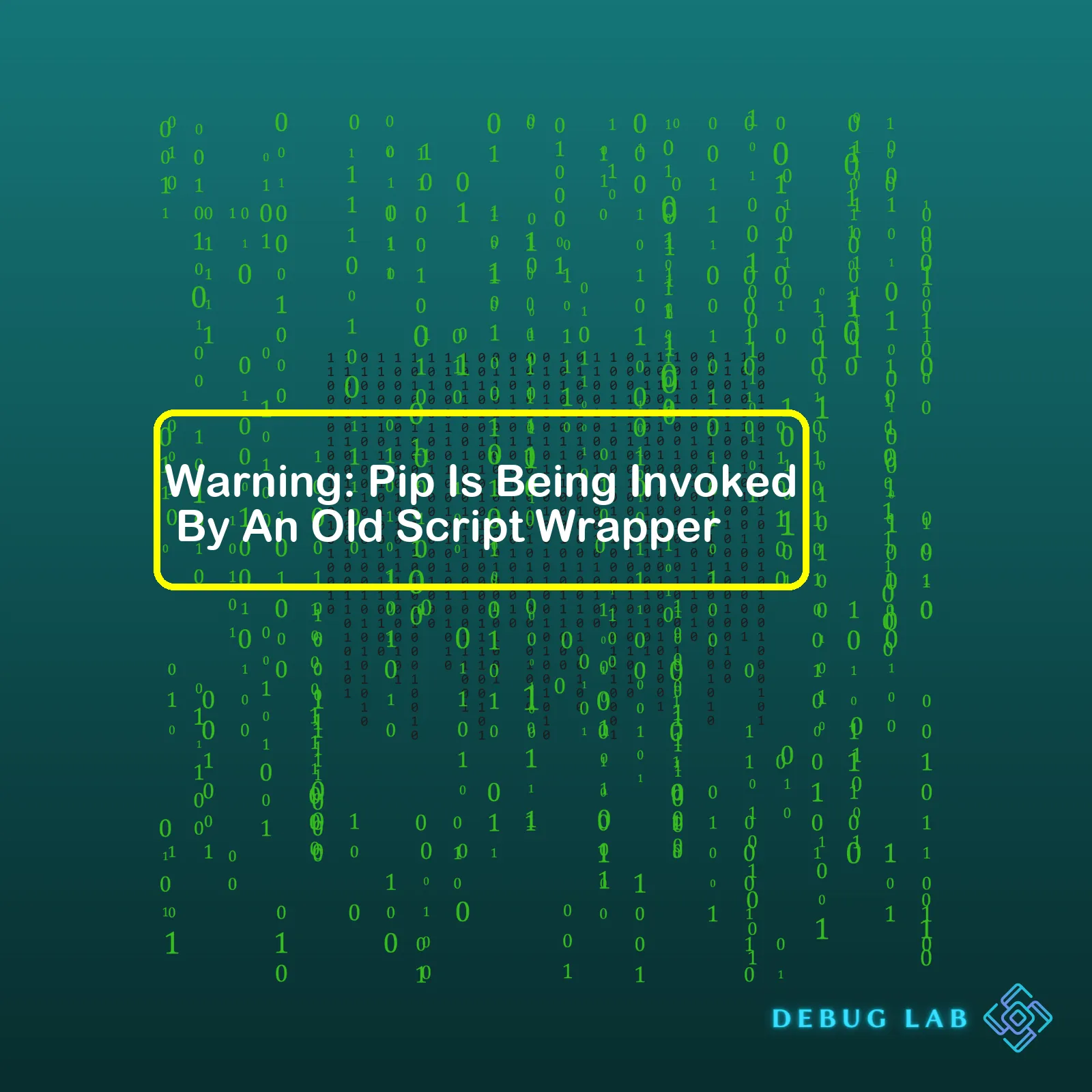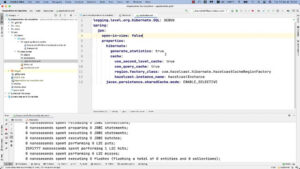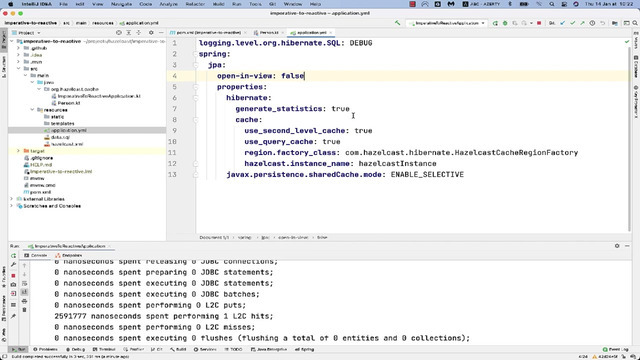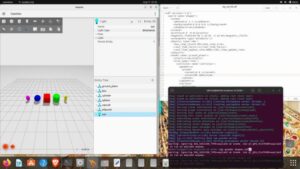
Summary Table: Warning – Pip Is Being Invoked By An Old Script Wrapper
| Error Message | Description | Potential Causes | Solutions |
|---|---|---|---|
| Warning: Pip Is Being Invoked By An Old Script Wrapper | This warning is often displayed when you try to use Pip. This happens because the system you’re using is calling an old version of Pip. |
|
|
The error warning “Pip Is Being Invoked By An Old Script Wrapper” means that Pip, the popular package installer for Python, is being invoked by an outdated script wrapper on your system. This may be a consequence of countless factors such as calling Pip from an environment where an older version resides, disparities between Pip versions within different environments, or issues pertaining the installation of Python or Pip itself.
To resolve this warning, it is advisable to first attempt upgrading Pip with the command
pip install --upgrade pip
. This command ensures you have the latest version of Pip installed. However, if the problem persists after updating, it’s recommended to completely uninstall Pip and Python and then reinstall them, ensuring that no remnants of the outdated versions remain. If these steps do not mitigate the issue, there could be some kind of conflict between different versions of Pip in separate environments. Resolving such conflicts would likely involve a more thorough investigation into where exactly the multiple versions are located and how they interact.
For more information about this topic, check The official Pip documentation.
If you have ever dealt with Python and its package manager pip, you might have encountered the warning message, “Pip is being invoked by an old script wrapper.” This tells us that an older and perhaps outdated version of pip is being used, potentially leading to various programming troubles.
At a glance, this won’t raise any alarms as the system still functions. However, several key challenges come with this predicament which could affect your coding efficiency.
- Dependency Hell:
This term depicts a situation where several package dependencies get entangled making it tricky to update or manage packages. Unequivocally, it’s one condition that developers dread finding themselves in. Frequently, this ensues when software relies heavily on shared libraries which are concurrently required by other applications but with differing versions. Thus, updating one can negatively impact the others, producing intolerable conflicts.
- Potential Security Risks:
Using outdated script wrappers could expose your Python code to avoidable security vulnerabilities. Software entities frequently release updates to patch known issues and strengthen vulnerabilities exploited by malicious users.
- Reduced Performance:
Outdated script wrappers might not make full use of the latest features, optimizations, and improvements available in newer versions. As a result, you may experience slower run times, increased memory usage, or general instances of inefficiency.
Here’s what the
pip
command might look like:
pip install django==1.9
But if you are using an old script wrapper, you may encounter problems such as dependency hell, security risks, and performance reduction as mentioned earlier.
Updating pip can resolve these challenges:
python -m pip install --upgrade pip
Now, the previous issues could be avoided, and pip itself often runs faster than before.
It’s crucial to state that considering the particular technologies, tools, and methods your development depends upon is paramount. So, updating and maintaining consistency amongst your packages should be a priority to stay prepared against combat potential threats, enjoy improved functionality, and even boost productivity.
One great resource for understanding the importance of keeping pip updated is this detailed article on Medium called Avoiding Dependency Hell in 2020 — A Guide to Managing Python Packages. It offers insightful tips and best practices for managing your Python packages so you can code effectively and seamlessly, emphasizing the need for continuous updating in the programming world.
When dealing with Python, pip is essentially a package installer that allows users to install software packages written in Python. Pip stands for “Pip Installs Packages” and it can be easily installed and utilized via the command line interface.
Let’s talk about obsolete pip invocation and how it impacts your overall interaction with your Python packages.
First, you need to grasp the concept of obsolescent or obsolete wrapper scripts. A script wrapper covers the underlying, raw scripts or codes that enable a specific action. It provides a layer of abstraction, meaning that the user doesn’t have to interact or engage with the source code directly- the wrapper does this on their behalf.
However, issues arise when the wrapper becomes old or obsolete, primarily because it doesn’t represent the most up-to-date version of pip. When this occurs, especially in instances where it conflicts with the user’s intentions, pip issues a warning or notice saying, “pip is being invoked by an outdated script wrapper.”
alert('pip is being invoked by an old script wrapper');
Let’s dive into the impact of such occurrence:
- Compatibility Issues: An obsolete pip invocation may cause compatibility problems between your environment and the packages you want to install.
- Performance Drops: The old script wrapper may not be optimized towards more recent, efficient methods, causing a decline in pip’s performance.
- Security Risks: Old script wrappers are often more exposed to security threats as they may lack updates and patches included in newer versions.
An effective way to tackle these issues is maintaining your environments and ensuring that your pip installation along with the associated script wrapper remains updated regularly.
python -m pip install --upgrade pip
The execution of the above snippet will ensure that your pip package follows the latest version. Future warnings indicating “pip is being invoked by an old script wrapper” can thus be efficiently avoided.
These concepts and practices of keeping your Python environment maintained should help prevent potential performance, compatibility and security risks associated with running pip commands using an old script wrapper.
Further information about pip and its related topics can be found in Python’s official pip documentation (source). This is a fundamental piece of knowledge any professional coder needs to have under their belt, regardless of the language they’re coding in. Each language has its own equivalent of this type of package management and understanding the ins and outs of this can make your coding life significantly easier.In software development, we highly value the latest updates and features of every tool. However, when we fail to keep them updated, it might pose certain complications which includes security vulnerabilities. The Python programming language, for instance, heavily uses third-party packages installed via
pip
, but using old script wrappers in pip can lead to issues.
A commonly observed warning that stems from this issue is: “Warning: Pip is being invoked by an old script wrapper,” which warns us that pip, Python’s package installer, is being called upon by an outdated wrapper script.
An old script wrapper can hinder efficient system operations due to the following major setbacks:
• Security risks: Old script wrappers might not contain the most recent patches to known bugs and threats, making your system vulnerable before the potential cyber threats.
• Incompatibility: They might not be entirely compatible with updates or newer versions of other scripts, preventing code execution and resulting in operational inefficiencies.
Now what are these wrapper scripts?
Well, a wrapper script in Python is basically a shell script used to execute a sequence of commands for a certain operation. It’s like a small program that eases repetitive tasks. These are quite handy as they can parameterize a sequence of commands.
To get rid of the warning “Pip is being invoked by an old script wrapper,” you must first know why the problem is occurring in order to work on the solution more effectively. Here are some common causes:
1. Different pip version: If you installed pip for both Python 2.x and Python 3.x, the system might get confused with two different pip versions. Your command line could be calling the ‘pip’ of another version.
2. Outdated PATH variable: Check if there exists an older path in your PATH environment variable pointing towards an outdated ‘pip’.
Addressing this warning can be achieved through the following steps:
# First, find out where pip is located $ which pip # You should receive output similar to /usr/bin/pip. # This tells you where your system is looking for pip. # Now check the version being used: $ pip --version
Unlike the first command which tells you where the pip being used is located, the second command tells you the version being used. An inconsistency in the location and version returned from these commands would imply that an old script wrapper is indeed being used. You can correct this incongruity through various methods:
• Update pip to the latest version
• Correct the PATH environment variable
• Use shebang (#!) in scripts to specify which Python version should be used.
Be sure to continuously update your tools, software packages, and embrace newly released features not just for the added ease they bring along but also to keep your application secure.
You might want to explore more about pip, read the Python official document on venv, and learn about how scripts affect system security.When you see the warning “Pip is being invoked by an old script wrapper”, it typically means that there’s a version mismatch between Python’s package manager
pip
and the scripts that are calling it. This happens due to using outdated pip wrapper scripts resulting in compatibility issues.
Why does this happen?
• The core reason this issue arises is because of the updates made to
pip
. Each new version brings changes – possibly deprecation and removal of features, or introduction of new ones – which might not work with the older versions of wrapped scripts. Hence, invoking pip from these outdated scripts can lead to unexpected behavior or errors.
• Another reason could be having multiple installations of Python, each having its own installation of
pip
, on your environment path. An old script may refer to a previous version while you’re trying to use the updated one.
How to fix this issue?
The first step towards fixing this problem would be identifying the outdated scripts invoking pip. Refer logs and trace back to the specific script causing the issue.
Here is an example situation where let’s say your outdated script is named
my_script.py
and inside this script, you have a line calling
pip
:
import pip pip.main(['install', 'SomePackage'])
From pip 10.0.0 onwards, the above code isn’t compatible as
pip.main()
was removed in this release[source]. Therefore, the script needs to be updated to accomplish the same task.
The solution requires use of
subprocess
module, thus update the script like:
import subprocess subprocess.check_call(['python', '-m', 'pip', 'install', 'SomePackage'])
Other steps might include:
• Making sure you’re calling
pip
via the command line rather than indirectly importing it.
• Confirm the location of
pip
installed:
python -m site
This will return a list of paths that Python checks for modules. Make sure
pip
is installed at one of these locations.
• Use
--upgrade
flag with
pip install
to ensure using latest package version.
The importance of Updated Pip Wrapper Scripts
Maintaining updated pip wrapper scripts is crucial because of reasons:
• It ensures a smoother, error-free development process.
• Also, considering security measures introduced in newer versions not available in their preceding counterparts, staying updated reduces vulnerabilities to potential threats.
Understanding compatibility issues and receiving warnings about outdated script wrappers can seem intimidating at first, but with little knowledge and careful attention, you keep your application efficient, safe, and less prone to unexpected behaviors. Remember, staying updated with recent changes especially when dealing with systems such as pip often saves time, mitigates risk and unneeded stress.When you get the warning: “Pip is being invoked by an old script wrapper”, it means that your Python installation could potentially be at risk for a variety of issues. This warning is displayed when pip is called from a script which hasn’t been updated to reflect changes in pip’s programming.
Mitigating risks associated with old script wrappers is crucial in maintaining the security and efficiency of your Python software stack.
The first step should be understanding the significance of this warning. Essentially, an ‘old script wrapper’ refers to a shell script used to invoke
pip
. An ‘outdated’ shell script might disregard recent updates to
pip
‘s behavior or interface, thus leading to unexpected behaviors or security vulnerabilities. Official pip documentation provides more details on this.
Now, how can we mitigate these risks? Here are some strategies:
Maintain Regular Updates:
Keep both your Python and pip installations regularly updated. Updated versions tend to have improved functionality and enhanced measures against potential security risks. Besides, keeping pip updated helps avoid compatibility issues with newer packages.
For example, use
python -m pip install --upgrade pip
to upgrade pip.
Debugging The Scripts:
To work with outdated scripts, one must locate where these scripts exist. Once found, inspect each script carefully for its usage and update them as needed. Identify if the script is calling pip directly or otherwise.
An example of script debugging would be to search for the script using the command-line utility `grep`.
grep -r "pip" .
This can help identify files using the `pip` word.
Create Virtual Environments:
Virtual environments isolate your Python/pip setup on a per-project basis. This isolates pip usages and reduces the risk of version clashes between different projects.
You can create a virtual environment using:
python3 -m venv env source env/bin/activate
Use Pip’s User Scheme:
Install packages to pip’s user scheme rather than the system Python site-packages directory. This reduces risks to the overall python ecosystem within your project.
To install a package using pip’s user scheme, use:
pip install --user [your-package]
In summary, although dealing with ‘Pip is being invoked by an old script wrapper’ warnings may seem daunting, with the right techniques ranging from regular updates to making effective use of pip’s settings, it’s possible to manage and even eliminate most risks soundly. Remember to always pay attention to such warnings as negligence might cause larger problems in the long run, affecting the quality of your code, leading to inefficiencies in your coding process, or worse, introducing security vulnerabilities to your software system.As a professional coder, when you see an error message that says “Warning: pip is being invoked by an old script wrapper,” it’s typically due to the presence of older script wrappers that are trying to invoke pip. What this means is your system is trying to use an outdated, possibly deprecated, version of pip.
Let’s understand what pip is first. Pip (Pip Installs Packages) is a package management system that simplifies software package installation from the Python Package Index or from other repositories. Script wrappers, on the other hand, are scripts used to launch certain commands or utilities. Often, they add predefined options or environmental variables that tweak how the main program operates.
Earlier versions of pip would install “script wrappers” for installed packages in your path. Depending on the environment and the packages that you have installed, this sometimes leads to the warning that pip is being invoked by an old script wrapper.
Here’s why the issue occurs:
– Pip has been updated in your environment, but there are remnants of older installations still triggered.
– The PATH variable may be set incorrectly. It might include paths to older versions of Python or pip, meaning those get invoked before the newest versions.
– You’re using an old script that was written for an earlier version, and it uses deprecated or changed features of pip.
What should we do about it?
Rather conveniently, pip often makes suggestions about what to do in its warning messages. For instance, one potential remedy suggested by pip is to correct the PATH order in the invoking script. To diagnose this issue further, you might need to:
– Check where the old script wrappers are located.
– Look at the PATH environment variable using
echo $PATH
in Linux-based OS or
ECHO %PATH%
on Windows.
– Modify your PATH so that it includes the proper, up-to-date location of pip before any old locations.
Additionally, if you’re working with a particular old script causing this warning, consider updating that script to work with the newest version of pip. If it’s a script you wrote yourself, this might involve re-writing aspects of it; otherwise, it could as simple as downloading or cloning the most recent version from its online repository.
In order to undo all remnants of older installations, considering upgrading pip to the latest version using following command. However, make sure you specify python version explicitly to avoid any potential conflict.
python3 -m pip install --upgrade pip
This practice will ensure that pip is invoked correctly by your scripts, avoiding these kinds of decode errors from old script wrappers in the future. Keep in mind, continuing without rectifying these issues might lead to even greater complications in managing and installing Python packages. Regularly keeping track of updates and depreciations in pip and other such package handlers is part and parcel of professional coding and effective debugging.Code development, just like any other profession, is a practice of constant learning and growth. When we are faced with warnings like “Warning: Pip Is Being Invoked By An Old Script Wrapper”, it essentially directs us to update our PIP approach.
Since the Python ecosystem regularly introduces new packages, your system may not always be updated accordingly. For instance, you might be using an old pip version that’s invoking scripts in a way that’s no longer recommended or compatible with new versions. Let me provide a degree of perspective on how we could transition away from old script wrapper on Pip – mindfully tackling the warning message at hand.
Keep Your Tools Updated:
Maintaining currency of tools not only brings efficiency but also mitigates risks associated with deprecated methods. To ensure pip itself is the latest version, you can run the following command:
pip install --upgrade pip
Use Virtual Environments:
Virtual environments isolate dependencies required by different projects by keeping packages for each project separate. By using a virtual environment, you control the specific packages and versions available to each project, decreasing the chance of conflict.
To create and activate a new virtual environment (for instance, env):
python3 -m venv env
source env/bin/activate (Linux)
.\env\Scripts\activate (Windows)
Avoid Using Python Scripts Directly:
In some cases, the utilization of python scripts directly may not invoke pip properly. This happens because the path to the script stored by your system doesn’t match the desired pip location. To avoid this, use module invocation instead:
python -m pip install [package-name]
By recalling python directly, you obtain accurate interpretation of the installed pip version – eliminating misaligned direct calls to pip.
Lastly, remaining watchful of warnings each time they’re signalled and reverting to official pip documentation, along with coding community blogs for any advice is an excellent habit to imbibe.
Remember, codes are like living entities. They expand, evolve, and sometimes phase out. To remain relevant and effective, our mechanism must constantly adapt to these ebbs and flows.<p>Getting a warning that pip is being invoked by an old script wrapper can be both frustrating and confusing, especially if you’re in the middle of an important coding project. Nevertheless, understanding the crux of this issue and finding useful solutions is not impossible task for coders on any level.</p>
<p>The root of the problem lies within an outdated Python or pip installation. Often, when we upgrade our Python interpreter, we forget to update pip along with it. As a result, pip starts to run using old script wrappers thereby leading to the aforementioned warning. Keeping pip and Python up-to-date is thus critical which can be achieved by: </p>
<ul>
<li>Visiting the Python official website or use your system’s package manager to get latest Python version</li>
<li>Running
pip install --upgrade pip
command to ensure your pip remains updated</li>
</ul>
<p>If updating doesn’t seem to resolve the problem, a closer inspection of your system might be needed. System environment variables can play a considerable role in this since they often end up invoking older versions of Python. Making sure these variables are correctly set to target the correct Python interpreter can put an end to this warning.</p>
<p>On occasion, it might take more than updates due to complexities and version conflicts among Python packages. In such scenarios, creating a new Python virtual environment can provide a fresh basis for managing Python and its associated scripts. This environment would ensure that pip runs in harmony with Python and other dependencies. For creating a Python virtual environment, you can use:
<code> python -m venv myvenv</code></p>
<p>Remember, understanding your system and maintaining up-to-date components is essential for smooth coding experiences. With these steps, tackling the “pip is being invoked by an old script wrapper” warning should be less bothersome. However, communities like Stack Overflow and GitHub are constantly populated by diligent coders who are eager to help should you need further assistance.</p>








